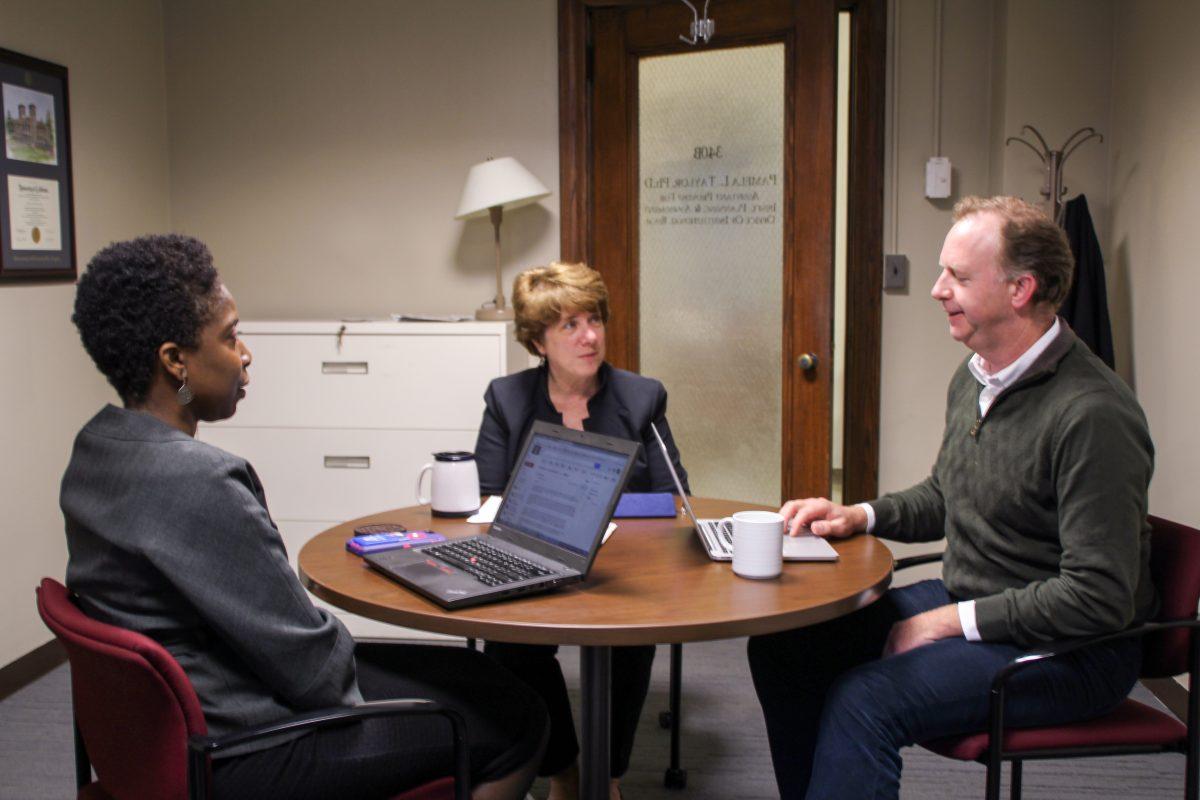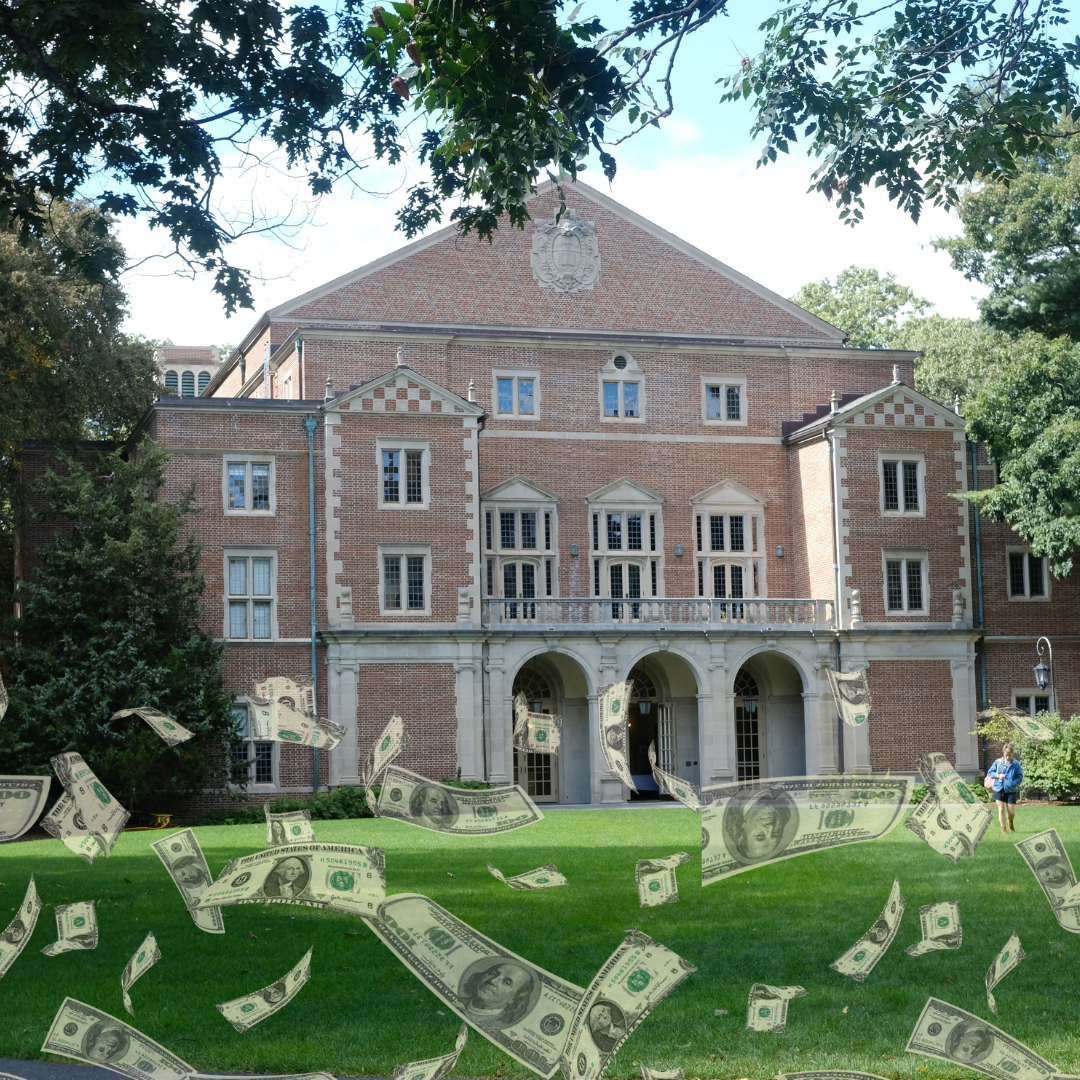The accreditation steering committee has begun its work for the semester, commencing a three stage process that will culminate in 2019 with the reaccreditation of the college. Reaccreditation occurs at Wellesley every ten years. The three stages of the process are the self-study; the site visit and the accreditation itself, which is granted by the New England Association of Schools and College’s (NEASC) Commission on Institutes of Higher Education.
The self-study calls for a school to candidly evaluate how well it meets each of the standards for accreditation. Wellesley will submit its self-study to NEASC in January 2019. The site visit, scheduled for March 10-13, 2019, will be conducted by individuals currently working at institutions similar to Wellesley, who will visit the campus and interact with students, faculty and staff to ensure that the self-study was accurate. The official accreditation will happen the semester following the site visit.
In Senate on September 18, the Assistant Provost of Institutional Planning and Assessment and Director of Institutional Research, Pamela Taylor, who is the co-chair of the steering committee along with Associate Professor of Classical Studies Bryan Burns, gave a presentation which gave an overview of the purpose of the accreditation process. According to Taylor, the basic goals of accreditation are to ensure that Wellesley “has appropriate purposes, has the necessary resources to accomplish its purposes, demonstrates that it is accomplishing its purposes and has the ability to continue accomplishing its purposes.”
The steering committee will help to ensure that Wellesley meets the goals outlined by Taylor through its compilation of the self-study. The committee, in accordance with NEASC standards, is broken into several smaller sub-committees, or standards, where members focus their attentions on specific issues. The standards are:
1 – Mission & Purposes
2 – Planning & Evaluation
3 – Organization & Governance
4 – Academic Program
5 – Students
6 – Teaching, Learning & Scholarship
7 – Institutional Resources
8 – Educational Effectiveness
9 – Integrity, Transparency, & Public Disclosure
The committees are designed to address areas that the college can improve. According to Taylor, one issue that the committee will have to address is Wellesley’s compliance with credit hours.
“We have to demonstrate compliance with all federal standards. There’s one in particular with the credit hour which we recognize that we might not be in compliance with the federal standard. The Academic Council Committee on Curriculum and Academic Policy is actively working to ensure that all of our classes are meeting that standard,” she explained.
Other areas of concern that community members are hoping will be addressed arose at the town halls. Held on Sept. 26 and 27, attendees at the town halls discussed issues such as whether or not the college was meeting its mission statement, how to increase informal interaction between faculty and staff, how to expand the diversity of faculty and concerns over student’s mental health.
Taylor also explained that there will be other opportunities for community input in the future.
“As part of completion for the self-study, we definitely want to give an opportunity for the community to comment and to review the draft document. And we’ll also have to have a time where we open it up to public comment, where anyone can provide feedback . . . As part of the site visit, there will also be opportunities for the community to give their input. The evaluation team will come to our campus, and we’re required to have open forums with faculty, staff, and students separately,” she said.
The committee has just begun its job of compiling information about the community. According to Megumi Murakami ‘20, a student member of the committee, the subcommittees are currently working to address Wellesley’s strengths and weaknesses as they pertain to the standards written by NEASC.
“Right now what we’re doing is discussing. Each standard has sub-standards. We’re going through each of them and discussing ways in which Wellesley has strengths, weaknesses or challenges, and ways that we can provide evidence for those strengths and weaknesses,” she explained.
Aviva Feldman ‘19, another student member of the committee, views the accreditation process as a constructive way to hold administration accountable for its actions and also a way to ensure that students’ concerns are not only heard, but effectively dealt with, as well.
“I think most if not all students at Wellesley feel that there is at least some disconnect between students and administration, in any variety of areas, academic and otherwise . . . This process is an opportunity to voice student concerns in a way that they will truly be heard, since there will be a third party (the accreditation organization) assessing Wellesley, which will prevent the administration from ignoring or discrediting student concerns,” she commented.
In Feldman’s opinion, there are a few key ways in which the college can improve itself throughout the process. First, she believes that Wellesley’s mission statement needs to be re-worded and re-purposed to include the notion that Wellesley isn’t just about preparing its students academically, but also in many different facets including leadership. Additionally, she thinks that the statement needs to include language on the importance of diversity within the student body, and that the gendered language of the statement needs to be changed to reflect a more inclusive campus.
Yet Murakami explained that since the initial steps of the reaccreditation process are focused on collecting data, active changes to the concerns that people voiced at the town halls will not occur for some time.
“When the school starts to embark on a self-assessment, sometimes people say really big ideas that are really not what we’re doing, like solving pretty big problems that have been around for seven years. Rather, we’re [currently] soliciting how people feel on how we’re doing on each of these assessments’ given standards,” she said.
Feldman is ultimately hopeful about the work that the committee is doing, and encourages students to voice their opinions.
“They can reach out to any of the students on the committee, or they can reach out to Bryan Burns or Pamela Taylor. The process really benefits from feedback, so do not be afraid to contribute!” She stated.






